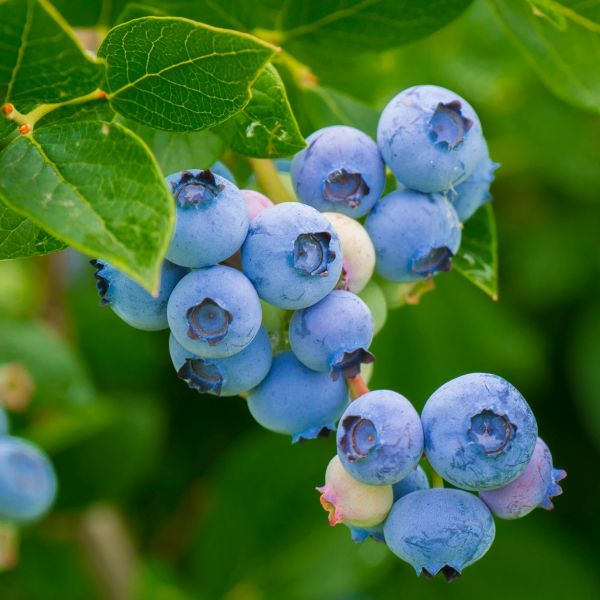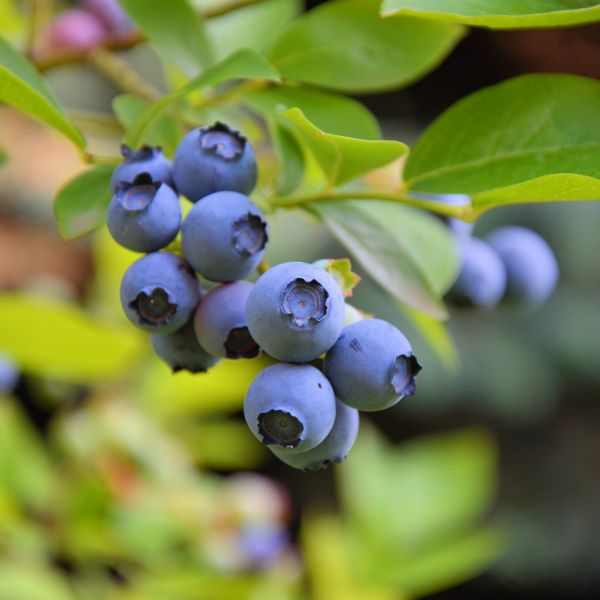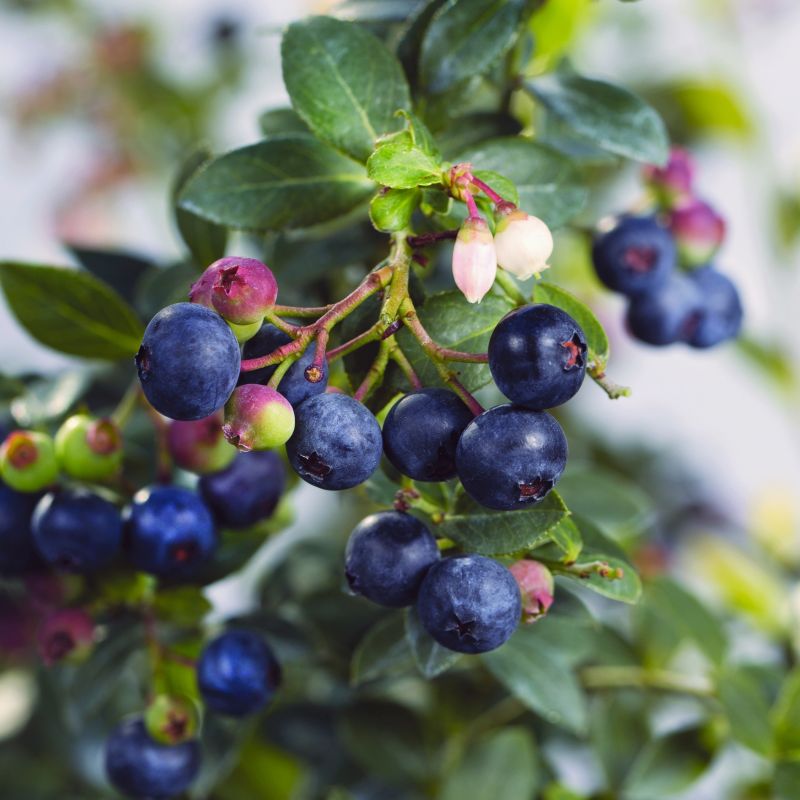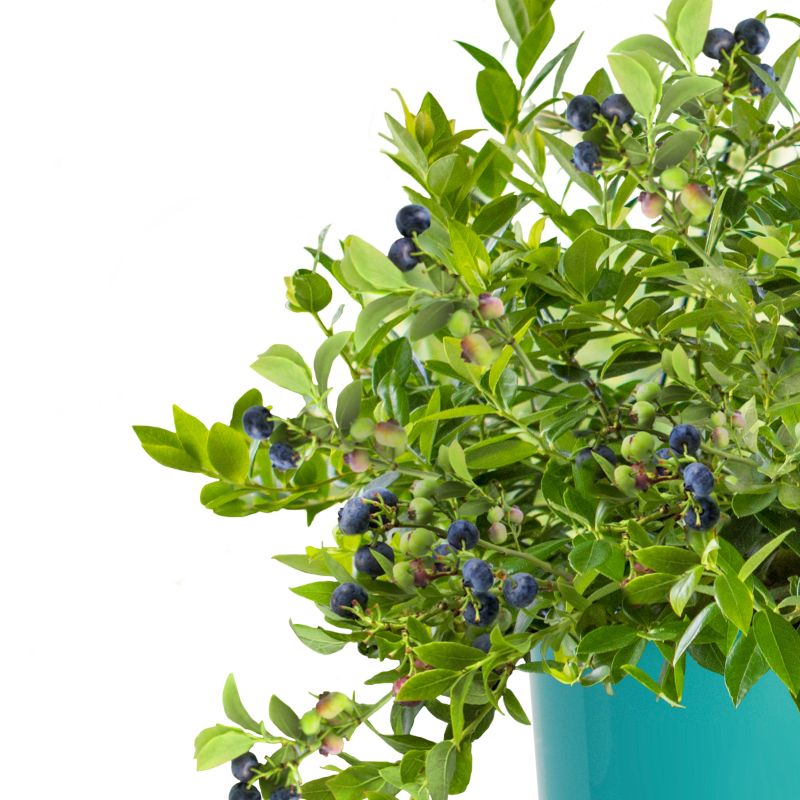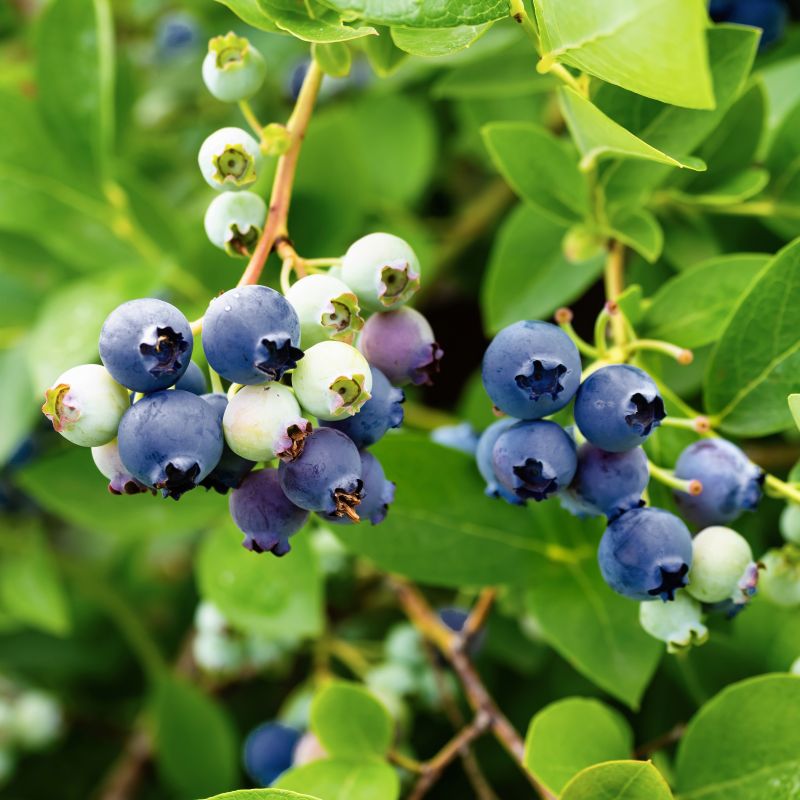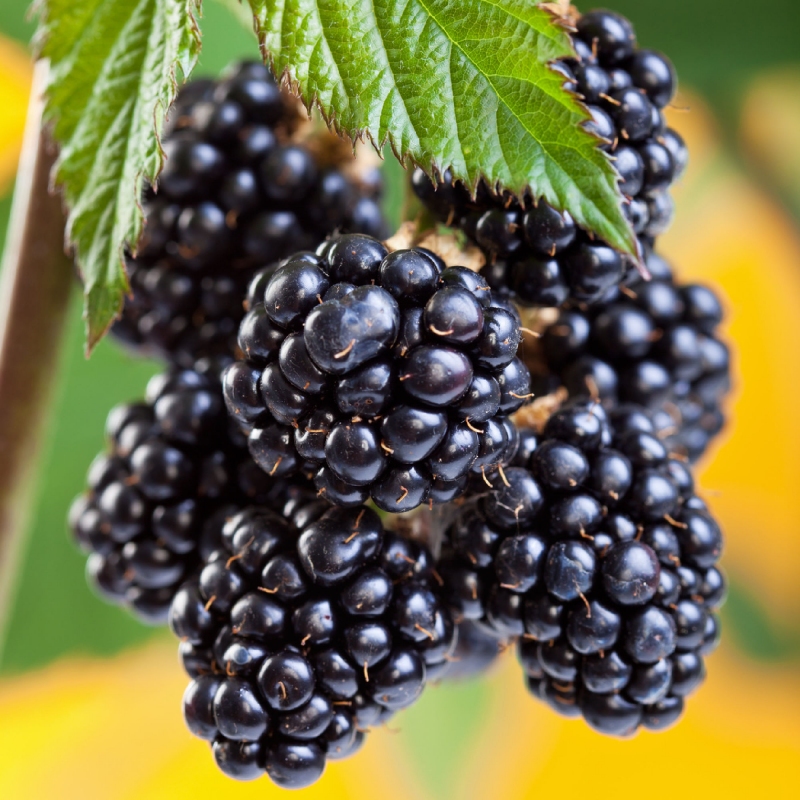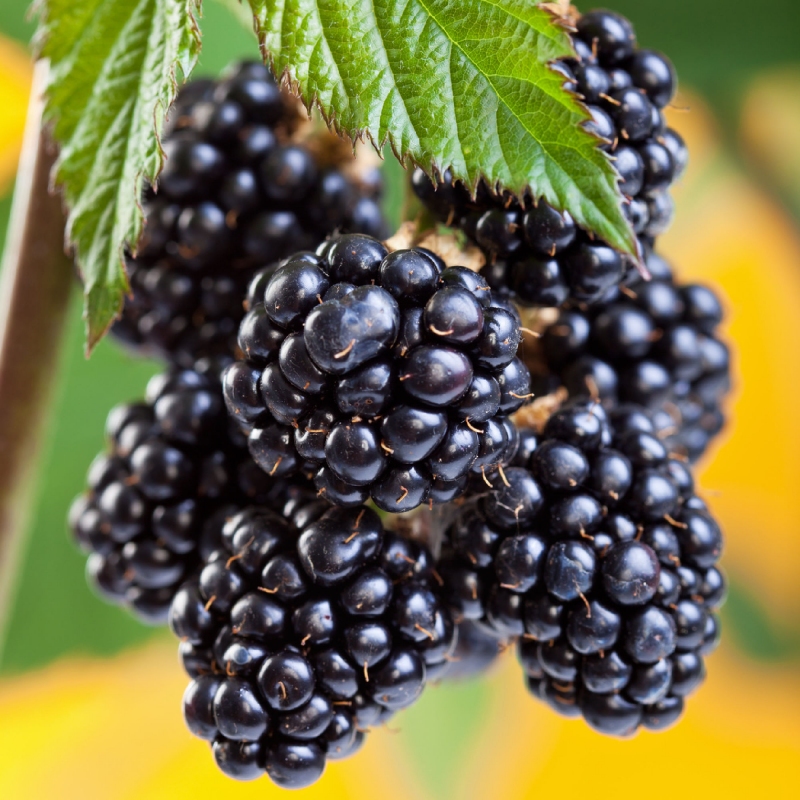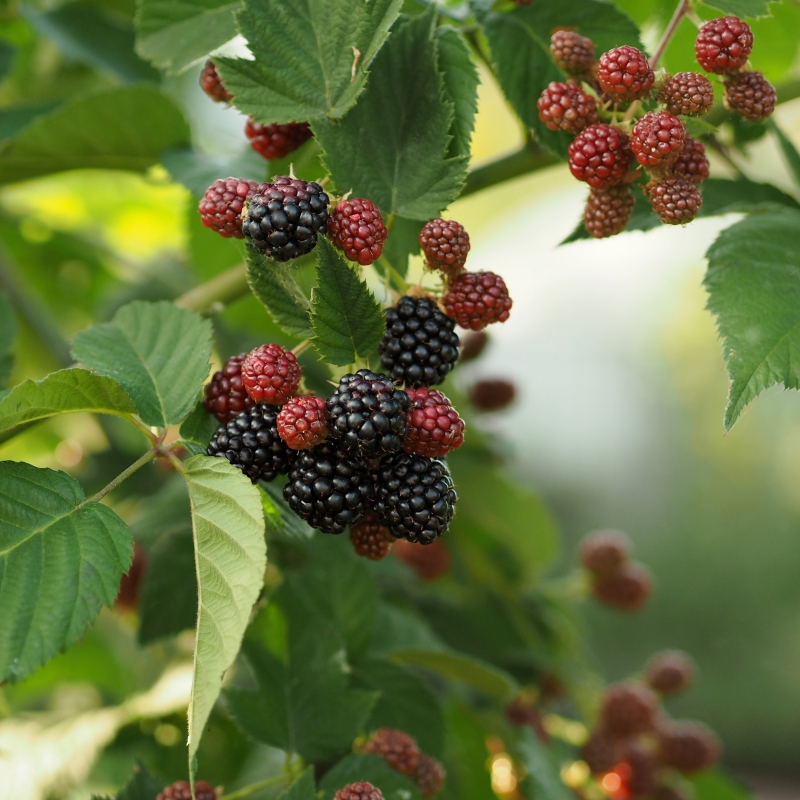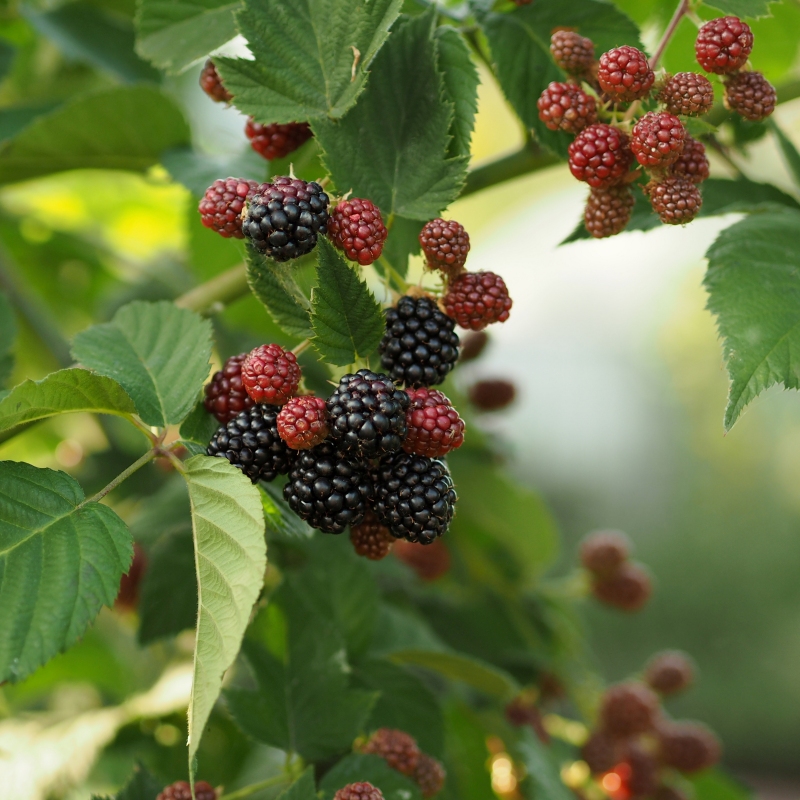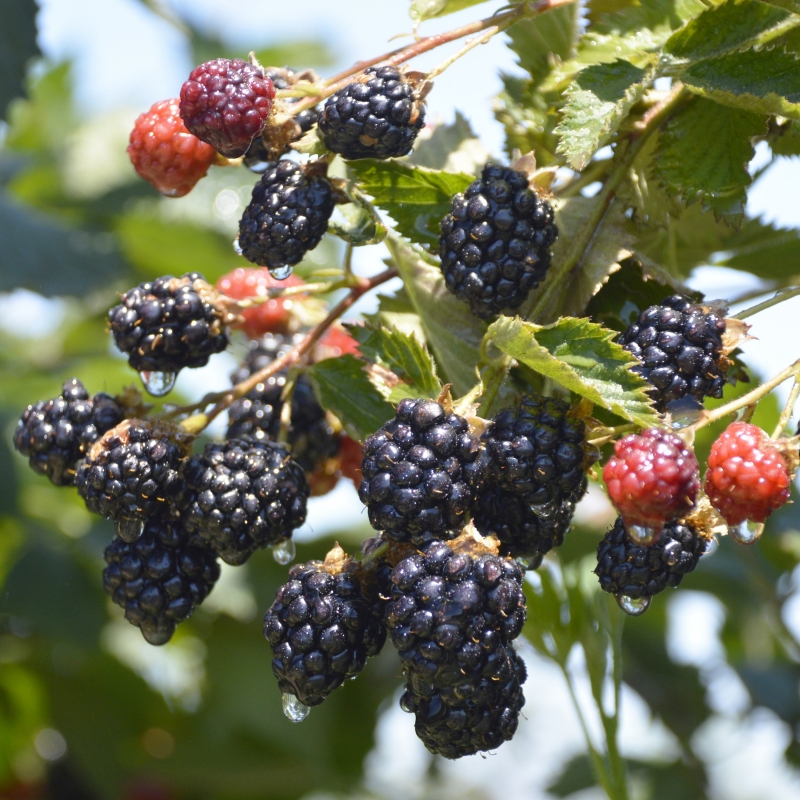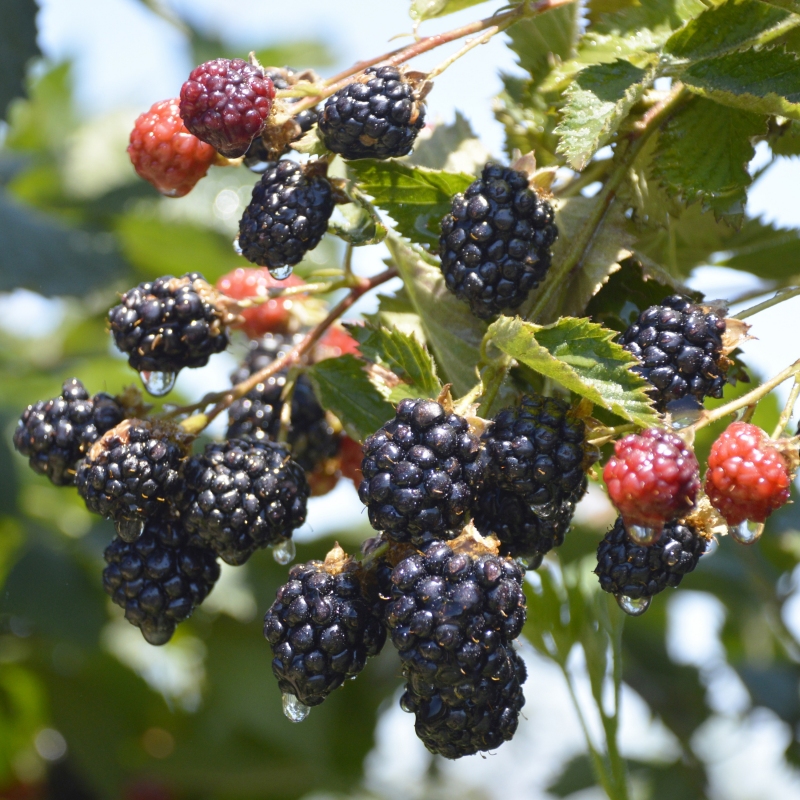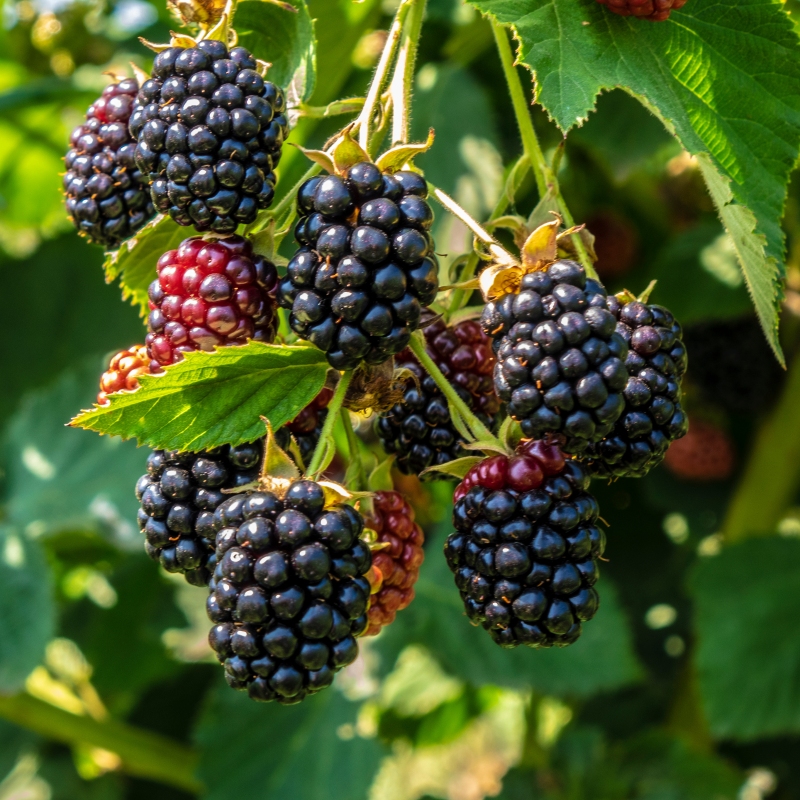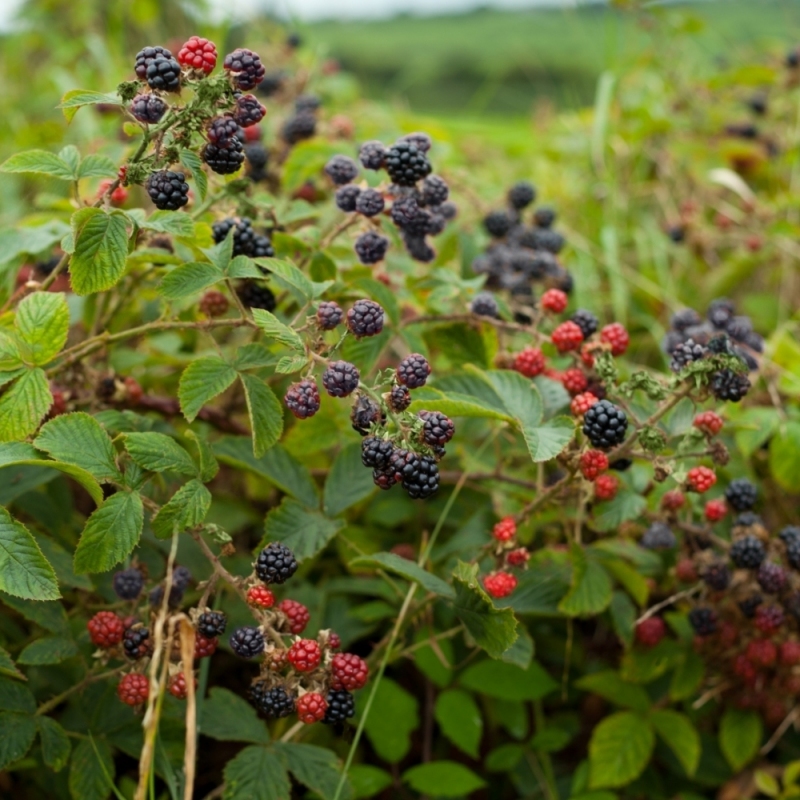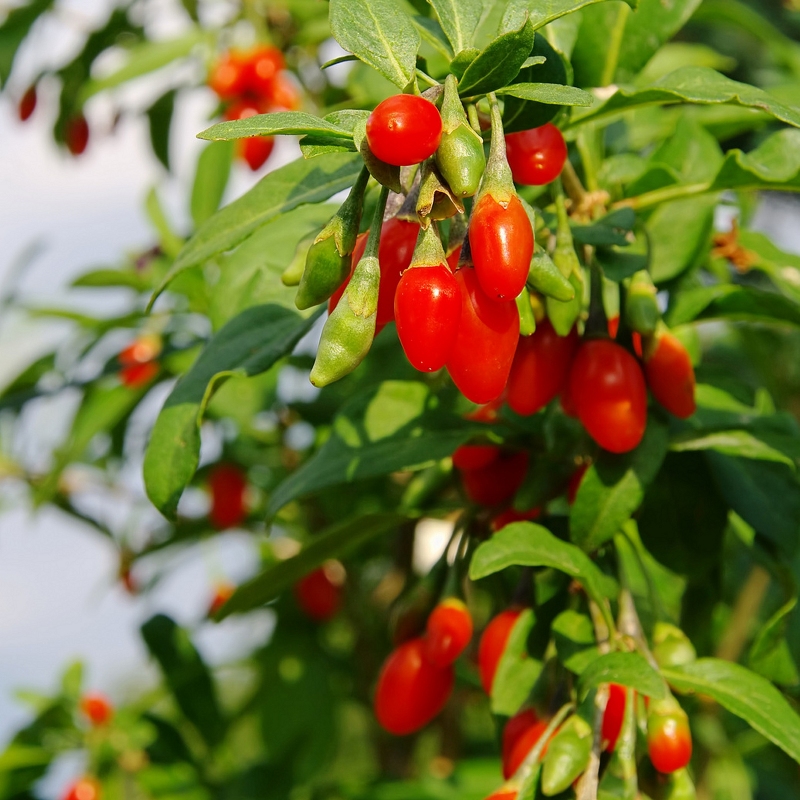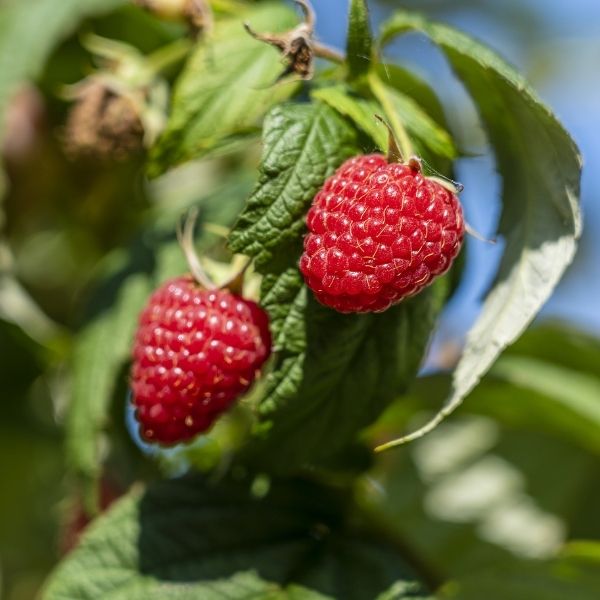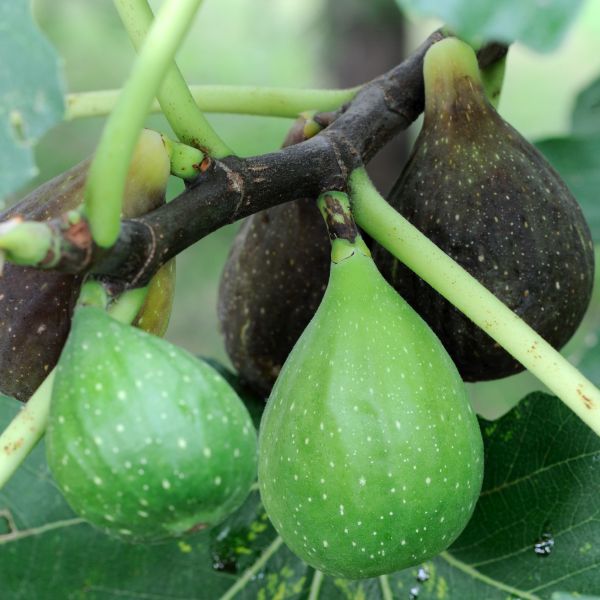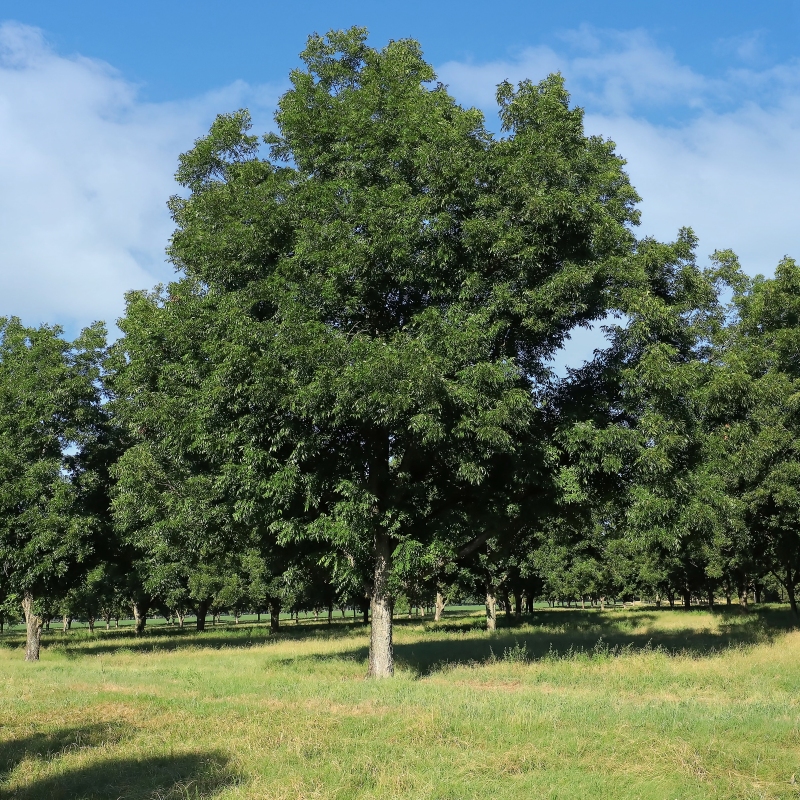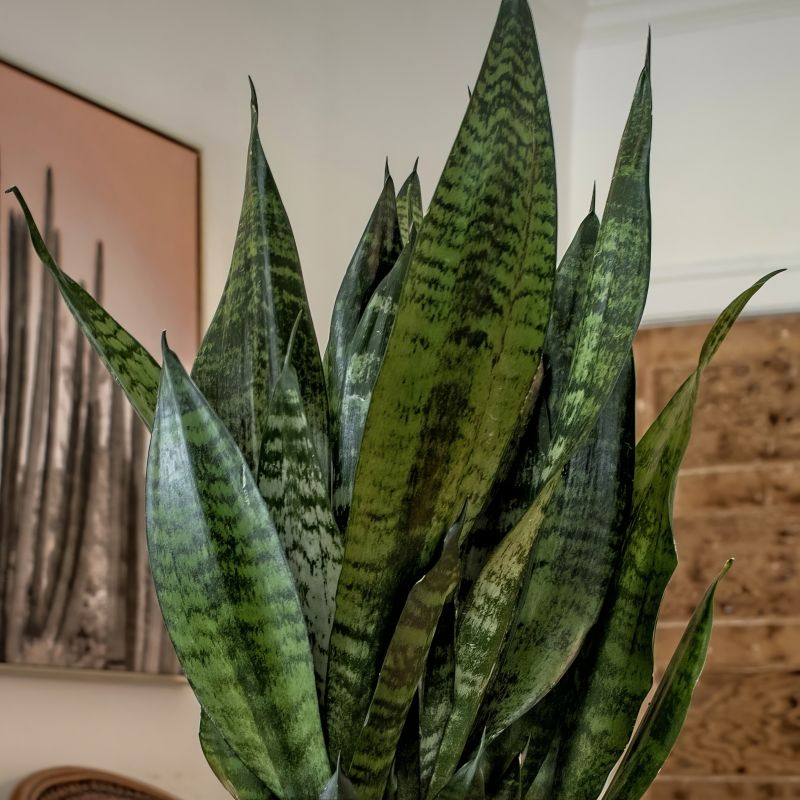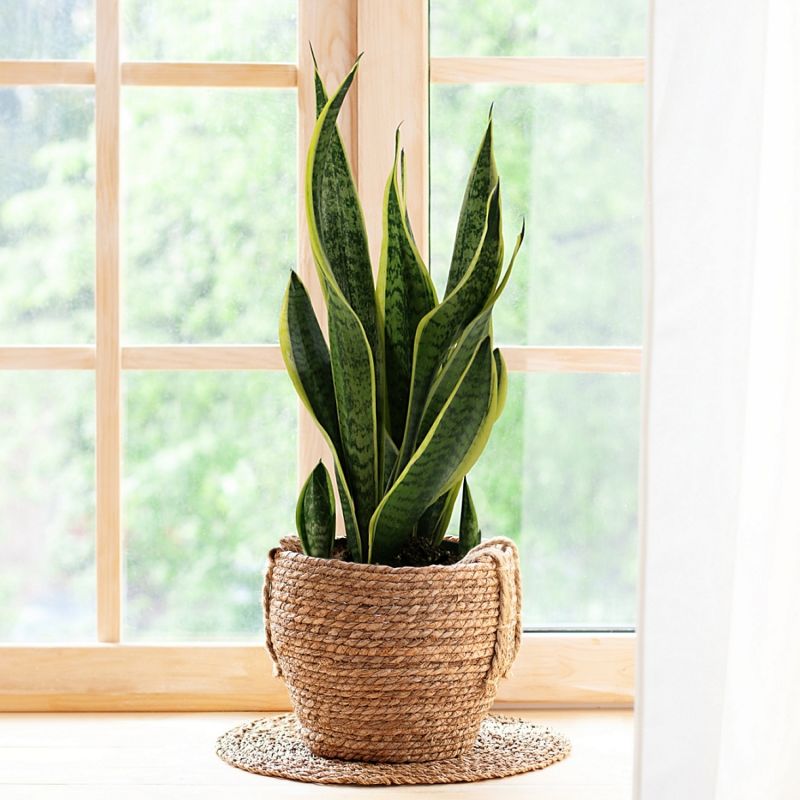

Legacy Blueberry
Vaccinium corymbosum 'Legacy'
19 reviews


Legacy Blueberry
Vaccinium corymbosum 'Legacy'
19 reviews
$77.00
$110.00
30% Off
1.5 Gallon
We are sorry, product is currently out of stock due to seasonal availability. Please check the "Related plants available in your area" section below
Why Legacy Blueberry?
Legacy Blueberry (Vaccinium corymbosum 'Legacy') is a highly sought-after variety of blueberry for several reasons. Firstly, it produces large, flavorful berries that are rich in antioxidants. Secondly, it has a long harvest season, extending from late spring to early summer. Additionally, Legacy Blueberry is known for its vigorous growth and disease resistance, making it a reliable and easy-to-grow plant for blueberry enthusiasts.
Related plants available in your area
Sunlight
Legacy Blueberry plants require full sun to partial shade for optimal growth and fruit production. They will typically produce the best quality berries when exposed to at least six to eight hours of direct sunlight per day.
Watering
Legacy Blueberry plants require consistent watering, especially during the fruiting season. They need moist soil but not waterlogged conditions. It is recommended to provide 1-2 inches of water per week, either through rainfall or irrigation, to ensure hea
Fertilizing
The fertilizer requirement for Legacy Blueberry plants typically includes a balanced blend of nitrogen, phosphorus, and potassium, along with organic matter, such as compost or aged manure, to improve soil fertility and ensure optimal growth and fruit prod
Legacy Blueberry (Vaccinium corymbosum 'Legacy')
Product Description:
The Legacy Blueberry (Vaccinium corymbosum 'Legacy') is a popular variety of blueberry bush that is highly regarded for its outstanding flavor and large berry size. This deciduous shrub belongs to the Ericaceae family and produces an abundance of delicious blueberries.
Key Features:
- Tasty Berries: The Legacy Blueberry is beloved for its exceptionally sweet and flavorful berries. These juicy fruits are perfect for fresh eating, baking, jams, and a variety of culinary uses.
- Large and Plump: The berries produced by this blueberry bush are notably larger than many other varieties, making them visually appealing and a delight to eat.
- High Yield: The Legacy Blueberry plant is a reliable producer, consistently delivering bountiful harvests year after year. With proper care, it can yield a substantial amount of fruit.
- Mid-Late Season: This blueberry variety is known for its mid to late-season ripening, generally producing berries in late summer or early fall. This timeframe allows for an extended harvest season.
- Beautiful Ornamental: Apart from its delicious fruit, the Legacy Blueberry also offers ornamental value. Its white flowers bloom in spring, creating a stunning display, while its dark green foliage adds beauty to any garden.
- Easy to Grow: With the right conditions, the Legacy Blueberry is relatively easy to grow and maintain. It prefers full sun but can tolerate partial shade. Additionally, this variety is self-fertile, meaning a single plant can produce fruit without requiring another variety for cross-pollination.
- Excellent Disease Resistance: This blueberry bush has good resistance to common diseases, such as powdery mildew and leaf spot. Proper care and maintenance will help ensure the plant remains healthy and productive.
Planting and Care:
To ensure optimal growth and fruit production, plant the Legacy Blueberry in well-drained, acidic soil. It is recommended to amend the soil with organic matter and maintain a pH level between 4.5 and 5.5. Regular watering, especially during dry periods, is important to keep the plant adequately hydrated. Applying a layer of mulch around the base helps retain moisture and control weeds.
Pruning the bush in late winter or early spring is crucial for maintaining its shape, removing dead or damaged branches, and promoting new growth. Fertilizing annually with an acidic fertilizer formulated for blueberries will supply essential nutrients for healthy development.
Note: It is advisable to consult your local gardening expert or extension office for specific care instructions tailored to your region's climate and soil conditions.
Add the Legacy Blueberry to your garden or orchard and enjoy a fruitful harvest of delicious, large, and flavorful blueberries. This outstanding blueberry variety is not only a treat for the taste buds but also a beautiful addition to any landscape.
Plant Information:
| Botanical Name: | Vaccinium corymbosum 'Legacy' |
| USDA Zones: | 5-8 |
| Water: | Moderate to Moist |
| Exposure: | Full Sun |
| Soil Needs: | Well-Drained |
| Mature Height: | 4 - 6 feet |
| Mature Spread: | 3 - 4 feet |
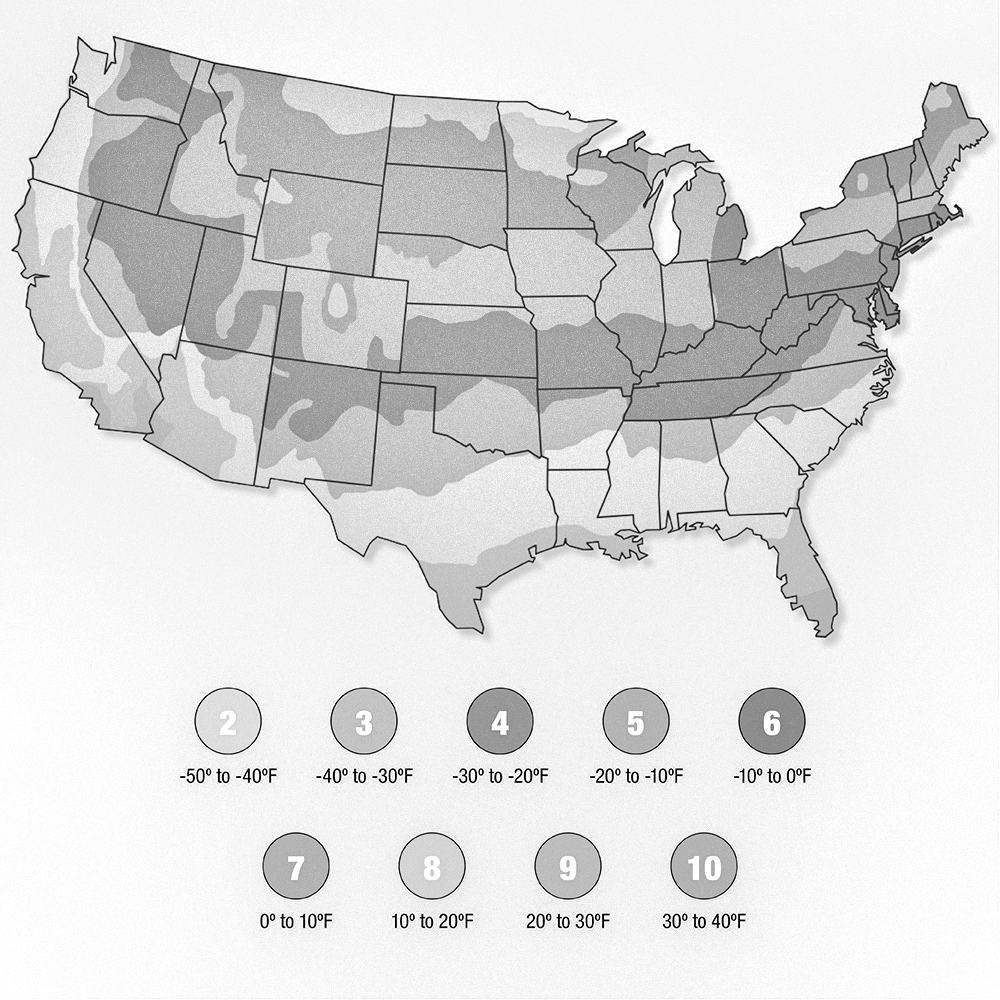




Pollination Info
The Legacy Blueberry (Vaccinium corymbosum 'Legacy') is a variety of highbush blueberry known for its abundant and delicious fruit. Proper pollination is essential for a successful harvest. Here is some detailed pollination information for this specific blueberry variety:
Pollination Type:
The Legacy Blueberry is partially self-fertile, which means it can produce fruit on its own, but cross-pollination with another compatible blueberry variety can increase the yield and quality of the crop.
Pollination Requirements:
For optimal pollination and fruit set, it is recommended to plant at least one other compatible blueberry variety nearby. This ensures cross-pollination between different cultivars and enhances the blueberry plants' ability to produce larger and more abundant berries.
Compatible Pollinators:
Some recommended blueberry varieties that can serve as suitable pollinators for Legacy Blueberry include:
- Bluecrop Blueberry (Vaccinium corymbosum 'Bluecrop')
- Jubilee Blueberry (Vaccinium corymbosum 'Jubilee')
- Spartan Blueberry (Vaccinium corymbosum 'Spartan')
Planting one or more of these compatible varieties in the vicinity of the Legacy Blueberry will greatly enhance pollination.
Pollination Process:
The pollination of Legacy Blueberry is primarily facilitated by bees, including honeybees and various native bee species. These bees visit the blueberry flowers to collect nectar and inadvertently transfer pollen from the male parts (anthers) of the flowers to the female part (stigma), leading to fertilization and the development of fruit.
Pollination Timing:
The Legacy Blueberry typically blooms in spring, usually around the same time as other highbush blueberry varieties. During the flowering period, it is crucial to have active pollinators present in the area to ensure effective cross-pollination.
Additional Considerations:
While planting compatible blueberry varieties nearby for cross-pollination is highly recommended, it is also important to consider the compatibility of bloom times, as simultaneous or overlapping bloom periods further increase the chances of successful pollination.
Providing a diverse range of flowering plants around the blueberry plants can help attract pollinators and improve overall pollination rates.
By following these pollination guidelines and ensuring a suitable pollinator is present, you can greatly increase the yield and quality of your Legacy Blueberry harvest.
FAQ
Frequently Asked Questions - Legacy Blueberry (Vaccinium corymbosum 'Legacy')
About Legacy Blueberry
Q: What is Legacy Blueberry?
A: Legacy Blueberry (Vaccinium corymbosum 'Legacy') is a popular cultivar of blueberry plant. It is known for its tasty and abundant fruit production.
Q: How tall does the Legacy Blueberry plant grow?
A: Legacy Blueberry plants can grow up to 4-6 feet in height.
Q: When does the Legacy Blueberry plant bear fruit?
A: The Legacy Blueberry plant typically bears fruit in mid to late summer, usually in July or August.
Growing Conditions
Q: What is the ideal soil pH for Legacy Blueberry?
A: Legacy Blueberry plants prefer acidic soil with a pH range of 4.0 to 5.5.
Q: Can I grow Legacy Blueberry in containers or pots?
A: Yes, Legacy Blueberry can be grown in containers or pots. Just make sure to choose a container with good drainage and use acidic potting soil.
Q: How much sunlight does Legacy Blueberry require?
A: Legacy Blueberry plants thrive in full sun, meaning they need at least 6-8 hours of direct sunlight per day.
Care and Maintenance
Q: How often should I water Legacy Blueberry plants?
A: It is important to keep the soil consistently moist but not waterlogged. Water deeply whenever the top inch of soil feels dry.
Q: Do I need to prune Legacy Blueberry plants?
A: Yes, pruning is necessary to promote healthy growth and fruit production. Prune during late winter or early spring before new growth starts.
Q: Is it necessary to fertilize Legacy Blueberry plants?
A: Yes, Legacy Blueberry plants benefit from regular fertilization. Use a balanced, acid-loving fertilizer according to the package instructions.
Harvesting and Storage
Q: When are Legacy Blueberries ready to be harvested?
A: Legacy Blueberries are ready to be harvested when they turn a deep blue color and easily detach from the plant with a gentle tug.
Q: How should I store harvested Legacy Blueberries?
A: Keep harvested blueberries in the refrigerator, unwashed, in a plastic container or bag. They can stay fresh for up to a week.
Q: Can I freeze Legacy Blueberries for long-term storage?
A: Yes, you can freeze Legacy Blueberries for long-term storage. Wash them, pat dry, and place them in a freezer-safe container or bag. They can be stored in the freezer for several months.
Planting & Care
Planting & Care for Legacy Blueberry (Vaccinium corymbosum 'Legacy')
Planting
- Select a suitable location with well-drained soil and full sun exposure (at least 6 hours of direct sunlight daily).
- Prepare the soil by removing any weeds, rocks, or debris. Till the soil to a depth of 12-18 inches.
- Dig a hole that is twice as wide and deep as the root ball of the plant.
- Place the Legacy Blueberry plant in the hole, ensuring that the top of the root ball is level with or slightly above the soil surface.
- Backfill the hole with the removed soil, gently firming it around the roots.
- Water the plant thoroughly after planting to settle the soil.
Care
- Watering: Blueberries require consistent moisture, especially during dry periods. Provide about 1-2 inches of water per week.
- Fertilization: Apply an acid-forming fertilizer specifically formulated for blueberries in early spring before new growth begins. Follow the package instructions for appropriate dosage.
- Pruning: Prune in late winter or early spring to remove any dead, damaged, or diseased branches. Also, thin out the older branches to encourage new growth.
- Mulching: Apply a layer of organic mulch (such as pine straw or wood chips) around the base of the plant to help retain moisture, suppress weeds, and regulate soil temperature.
- Pollination: Blueberries are self-fertile, but planting multiple varieties can help increase fruit yield. Legacy Blueberries will benefit from cross-pollination with other blueberry varieties.
- Protection: Protect the plants from birds by covering them with netting or using scare devices.
- Pest and Disease Control: Monitor the plants regularly for signs of pests or diseases, such as aphids, mites, or blueberry stem blight. Use appropriate insecticides or fungicides if necessary, following the instructions provided.
- Harvesting: Legacy Blueberries are typically ready for harvest in mid to late summer when the berries are fully ripe and easily detach from the plant. Pick the berries carefully to avoid damaging the plants.
Check Out These Verified Customer Reviews:
Customer Reviews
4.7 out of 5 based on 19 reviews
Thank you! Your review has been submitted.
The Legacy Blueberry arrived fresh and plump, with a beautiful deep blue color. The website was easy to navigate, and the shipment arrived promptly. Overall, great quality and service!
The blueberries were fresh and delicious.
Impressed with the customer service, very helpful and friendly.
Item has been added to your cart.



